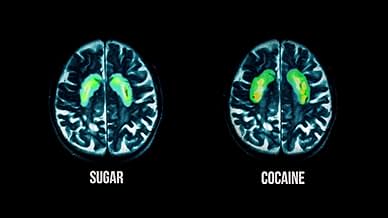CALIFICACIÓN DE IMDb
7.7/10
13 k
TU CALIFICACIÓN
Agrega una trama en tu idiomaAn examination of America's obesity epidemic and the food industry's role in aggravating it.An examination of America's obesity epidemic and the food industry's role in aggravating it.An examination of America's obesity epidemic and the food industry's role in aggravating it.
- Dirección
- Guionistas
- Elenco
- Premios
- 3 nominaciones en total
Bill Clinton
- Self
- (as President Bill Clinton)
Michael Bloomberg
- Self
- (as Mayor Michael Bloomberg)
Mark Hyman
- Self
- (as Mark Hyman M.D.)
Tom Harkin
- Self
- (as Senator Tom Harkin)
- Dirección
- Guionistas
- Todo el elenco y el equipo
- Producción, taquilla y más en IMDbPro
Opiniones destacadas
Although I am a Doctor of medicine and these facts are known by me since decades, I'll try to evaluate the efficiency of this documentary more than the facts which are undisputed.
The "not enough data" or "the relation is unclear" for many global hazards, are arguments that is constantly presented by all the major corporations. The pollutants in the atmosphere, the radiation emitted by cellphones and many other dangers are overlooked by the governments because of the enormous profits of major industries. To tell you the truth if these factories were to be closed probably millions of people would lose their jobs and their families could starve, literally.
That's not an excuse though. You can't (I heard the exact example in some TV series) to sell drugs with the excuse that YOU need to survive and provide to your family.
Fed Up, if nothing else, seems like a very credible Documentary. With interviewees such as professors of medicine from universities like Harvard, an ex-head of the FDA, and even an ex-POTUS (Bill Clinton) it's difficult to have doubts about that.
The "emotional" segments with actual families who suffer from obesity and what goes with it, are occupy a large part of the film but aren't too melodramatic.
The facts are presented with a clear way. Modern infographics are merged with real life examples to make each message as comprehensible it can be. You also get to realize some "weird" truths like the fact that while the US government is trying make the citizens and especially kids to eat healthier, at the same time tries to promote the use of agricultural products like corn when corn syrup is the number one provider of the sugar in many many foods.
The statistics are to be feared. 50% of American will experience the consequences of obesity even if their weight is in normal range. The movie rings the bell for the future generations too.
The production has high production values and a modern feel.
Just read that some critics wrote things like "A whirlwind of talking heads, found footage, scary statistics and cartoonish graphics". Well...that's a good thing! The problem is that all these facts and guidelines are often written in poorly made pamphlets or boring videos. You want nowadays to pass your messages in a modern way. Fast cuts, graphics and music are essential so the movie won't get boring and the viewers stop watching and miss the message.
A good effort overall. I recommend to see it, and to take it seriously.
The "not enough data" or "the relation is unclear" for many global hazards, are arguments that is constantly presented by all the major corporations. The pollutants in the atmosphere, the radiation emitted by cellphones and many other dangers are overlooked by the governments because of the enormous profits of major industries. To tell you the truth if these factories were to be closed probably millions of people would lose their jobs and their families could starve, literally.
That's not an excuse though. You can't (I heard the exact example in some TV series) to sell drugs with the excuse that YOU need to survive and provide to your family.
Fed Up, if nothing else, seems like a very credible Documentary. With interviewees such as professors of medicine from universities like Harvard, an ex-head of the FDA, and even an ex-POTUS (Bill Clinton) it's difficult to have doubts about that.
The "emotional" segments with actual families who suffer from obesity and what goes with it, are occupy a large part of the film but aren't too melodramatic.
The facts are presented with a clear way. Modern infographics are merged with real life examples to make each message as comprehensible it can be. You also get to realize some "weird" truths like the fact that while the US government is trying make the citizens and especially kids to eat healthier, at the same time tries to promote the use of agricultural products like corn when corn syrup is the number one provider of the sugar in many many foods.
The statistics are to be feared. 50% of American will experience the consequences of obesity even if their weight is in normal range. The movie rings the bell for the future generations too.
The production has high production values and a modern feel.
Just read that some critics wrote things like "A whirlwind of talking heads, found footage, scary statistics and cartoonish graphics". Well...that's a good thing! The problem is that all these facts and guidelines are often written in poorly made pamphlets or boring videos. You want nowadays to pass your messages in a modern way. Fast cuts, graphics and music are essential so the movie won't get boring and the viewers stop watching and miss the message.
A good effort overall. I recommend to see it, and to take it seriously.
The film itself was disappointing in it's often unreadable graphics and sometimes ADD-like pacing of images but I give it a 10 for the important messages that need to find as wide an audience as possible. One of those messages is of the extreme amounts of added sugar in the average American diet but the other is about the tremendous conflict of interest in most government agencies, and our public servants in Congress, which have chosen to protect corporate profits over the health and safety of our citizens.
The more one learns about the causes of obesity and how to effect healthy weight loss the more one understands that most doctors and nutritionists are subject to the same misinformation and propaganda as the rest of us. It's not about exercise nor is it about calories. It's about the quality and the combination of the foods you consume.
I strongly recommend the books of Dr. Mark Hyman to anyone who wants to learn more. Especially "The 10 Day Detox Diet" which is a fast, uncomplicated read with very clear instructions. Diet, in this sense, is less of a weight loss scheme and more of a well explained, sensible plan on how to eat for the rest of your life to stay healthy. Weight loss is a byproduct of healthy eating. I recently followed his detox and lost 10 pounds by removing sugar and other inflammatories from my diet. I'm a very good cook, cook all my own food, and purchase nearly everything at the farmer's market. I thought I was already eating quite well. But I was ignorant on certain foods, such as beans and starchy vegetables, which rapidly turn to sugar once consumed. The body has a similar reaction to foods which turn into sugar quickly as it does to eating raw sugar directly. The point is that even if you think you have a healthy diet there are probably simple things you can do to make it even better.
Michael Pollan has offered some of the very best food advice that is too simple to ever forget. Eat real food, not too much, mostly plants. Don't eat anything your grandmother wouldn't recognize as food. Don't eat anything with more than 5 ingredients unless you made it yourself. I know that my grandmother wouldn't recognize most of what is sold in any supermarket in the country as actual food. What's on the shelves these days is more like futuristic food-like substances. Reminds me of how we used to giggle when Velveeta was marketed as an "authentic cheese food". That's about as far away from actual cheese, or real food, as one can get. And Kraft was being surprisingly honest about that.
As with most things nowadays, one has to learn to read the coded language of the marketing campaign as well as the not entirely truthful nutritional labels and ingredients list. Because while Big Food may be subject to some sort of wrist slap for outright lies they have officially sanctioned governmental approval to be as purposefully misleading as possible.
The more one learns about the causes of obesity and how to effect healthy weight loss the more one understands that most doctors and nutritionists are subject to the same misinformation and propaganda as the rest of us. It's not about exercise nor is it about calories. It's about the quality and the combination of the foods you consume.
I strongly recommend the books of Dr. Mark Hyman to anyone who wants to learn more. Especially "The 10 Day Detox Diet" which is a fast, uncomplicated read with very clear instructions. Diet, in this sense, is less of a weight loss scheme and more of a well explained, sensible plan on how to eat for the rest of your life to stay healthy. Weight loss is a byproduct of healthy eating. I recently followed his detox and lost 10 pounds by removing sugar and other inflammatories from my diet. I'm a very good cook, cook all my own food, and purchase nearly everything at the farmer's market. I thought I was already eating quite well. But I was ignorant on certain foods, such as beans and starchy vegetables, which rapidly turn to sugar once consumed. The body has a similar reaction to foods which turn into sugar quickly as it does to eating raw sugar directly. The point is that even if you think you have a healthy diet there are probably simple things you can do to make it even better.
Michael Pollan has offered some of the very best food advice that is too simple to ever forget. Eat real food, not too much, mostly plants. Don't eat anything your grandmother wouldn't recognize as food. Don't eat anything with more than 5 ingredients unless you made it yourself. I know that my grandmother wouldn't recognize most of what is sold in any supermarket in the country as actual food. What's on the shelves these days is more like futuristic food-like substances. Reminds me of how we used to giggle when Velveeta was marketed as an "authentic cheese food". That's about as far away from actual cheese, or real food, as one can get. And Kraft was being surprisingly honest about that.
As with most things nowadays, one has to learn to read the coded language of the marketing campaign as well as the not entirely truthful nutritional labels and ingredients list. Because while Big Food may be subject to some sort of wrist slap for outright lies they have officially sanctioned governmental approval to be as purposefully misleading as possible.
10rannynm
Eye-opening! I love the way this film's message comes through in an intellectual and impactful way. This documentary tackles the issue of childhood obesity and follows the lives of kids across America. In between, we learn that everything we know about losing weight is wrong and that the content in our food products is a lie.
I want you to find any processed food product and look on the nutrition label. You will find that sugar does not have a percent daily value. All the other ingredients do. Why not sugar? Because, "80% out of the 600,000 food products sold in the country have added sugar and since 1995 the government has provided over eight billion dollars in subsides for corn based sweeteners." Revealing these surprising facts was no easy feat however, director Stephanie Soechtig brilliantly shows the struggle that all kids go through as they battle obesity. The half a dozen kids they follow through their physical and, more important, emotional pain - are amazing. We see them living different lives but dealing with the same obstacles. Their everyday struggles prove this film's theory. Many doctors, authors and, even presidents, are interviewed. Each has their say in the issue and all have wise words. The animation showing graphs, pie charts and ratings are clever. Mixed in with the informative, stock footage of news and food commercials showing the history of obesity, make this an exciting and insightful film.
I was blown away by Maggie Valentine's story. This beautiful girl is going through the heartache of trying to control her weight. She works everyday to release weight but, in the end, it's futile. To see her tears, frustration and sadness is unbearable to watch.
The message in this film is, "Change the food industry!" Being overweight is not entirely a personal fault. Our processed foods are a huge cause of the obesity rate in America. Food companies continue to grow bigger and stronger. Thus, we need to change the way we eat. We need to stop putting gasoline on to the fire. It's not easy. As Margo Wootan says, "Healthy eating is like swimming up stream. If you want to eat better you have to work hard against the food environment." The interview with David Allison, PH.D, Director of the Nutrition Obesity Research Center, is both tragic and funny. Allison has repeatedly taken research money from Coke, Pepsi and America Beverage Association. Asked about sugary beverages, David says, "one question you might ask is 'weather sugary beverages contribute more calories than other foods'" The interviewer asks, "Do they?" David replies, "It's a good question but I don't think the evidence is quite clear." The interviewer asks, "What is the science behind that?" David replies, "The ideal study might be to require people to (he stumbles) Ah, let me start again on that. Let me get my thoughts together..." Allison can't even form words. This made me chuckle because he can't even devise a logical explanation.
I give this 5 out of 5 stars and recommend this to 6- to 18-year-olds. Kids need to be aware of what's in the food they eat and learn how to make better choices.
Reviewed by Keefer B., KIDS FIRST! Film Critic. For more reviews go to kidsfirst dot org
I want you to find any processed food product and look on the nutrition label. You will find that sugar does not have a percent daily value. All the other ingredients do. Why not sugar? Because, "80% out of the 600,000 food products sold in the country have added sugar and since 1995 the government has provided over eight billion dollars in subsides for corn based sweeteners." Revealing these surprising facts was no easy feat however, director Stephanie Soechtig brilliantly shows the struggle that all kids go through as they battle obesity. The half a dozen kids they follow through their physical and, more important, emotional pain - are amazing. We see them living different lives but dealing with the same obstacles. Their everyday struggles prove this film's theory. Many doctors, authors and, even presidents, are interviewed. Each has their say in the issue and all have wise words. The animation showing graphs, pie charts and ratings are clever. Mixed in with the informative, stock footage of news and food commercials showing the history of obesity, make this an exciting and insightful film.
I was blown away by Maggie Valentine's story. This beautiful girl is going through the heartache of trying to control her weight. She works everyday to release weight but, in the end, it's futile. To see her tears, frustration and sadness is unbearable to watch.
The message in this film is, "Change the food industry!" Being overweight is not entirely a personal fault. Our processed foods are a huge cause of the obesity rate in America. Food companies continue to grow bigger and stronger. Thus, we need to change the way we eat. We need to stop putting gasoline on to the fire. It's not easy. As Margo Wootan says, "Healthy eating is like swimming up stream. If you want to eat better you have to work hard against the food environment." The interview with David Allison, PH.D, Director of the Nutrition Obesity Research Center, is both tragic and funny. Allison has repeatedly taken research money from Coke, Pepsi and America Beverage Association. Asked about sugary beverages, David says, "one question you might ask is 'weather sugary beverages contribute more calories than other foods'" The interviewer asks, "Do they?" David replies, "It's a good question but I don't think the evidence is quite clear." The interviewer asks, "What is the science behind that?" David replies, "The ideal study might be to require people to (he stumbles) Ah, let me start again on that. Let me get my thoughts together..." Allison can't even form words. This made me chuckle because he can't even devise a logical explanation.
I give this 5 out of 5 stars and recommend this to 6- to 18-year-olds. Kids need to be aware of what's in the food they eat and learn how to make better choices.
Reviewed by Keefer B., KIDS FIRST! Film Critic. For more reviews go to kidsfirst dot org
Fed Up is a very interesting documentary about everything what is wrong in the food industry, especially the American one. It's all about the lobbyists and making as much profit as possible. The same like it was with the tobacco industry in the past, and the same as what is still happening with the firearm and oil industry. It's almost impossible to fight those big companies because they have so much money that they will corrupt the majority of people that are in charge of the laws. On the other hand you will still have people that are not selfish and that will try to make this world a better place. A place where money has no role and where people can live healthy and in peace. For that Fed Up is ideal because they can't ban a documentary like this one, where the truth about the food industry is being said. What makes the documentary sad sometimes is seeing how badly informed and brainwashed that a lot of Americans are. Seeing those morbidly obese children being desperate and trying to figure out why they are so fat is sad to see. What I found utterly disgusting as an European was the food those kids eat in their school. I had absolutely no clue that all those fast-food companies ruled the whole cafeteria. That would be absolutely impossible in any European country. There is no way our schools would serve our children hamburgers with fries, pizzas, nachos and all other crap food every day. I just can't believe parents in America don't say anything about that. Well most of them are obese as well so I guess they are used to it since they were kid themselves, but it's just appalling that something like that is possible in schools where your kids should learn to grow up healthy. Anyways, Fed Up, is a well done documentary that should be mandatory in every American family. A must see for every citizen of the world, fat or skinny, it doesn't matter.
The movie titled Fed Up is about the effects of sugar and its contribution to the worldwide obesity and type 2 diabetes pandemic, a situation so serious that children were beginning to get this disease, which was initially classified as adult onset diabetes. The movie does a good job of describing the politics of food and the complicity of the USDA with multi-national agribusiness/food companies, mostly revealed by Marion Nestle's, PhD in her Food Politics and Soda Politics. The movie breaks down in having revealed the evils of sugar, it failed to adequately discuss the alternatives to sugar. Just eating vegetables and fruits is an incomplete answer. This omission arises because there is eclectic group of scientist/doctors with conflicting view as to what constitutes a healthy diet. To that end, one needs to look at the cast of characters in this movie and those who are missing but should have been included.
First and foremost there is First Lady Michele Obama with her "let's move" program, yet she does not want to "demonize" the food and beverage industries. Both Dr Nestle and Mrs. Obama seem to me to be proponents of the lipid hypothesis that saturated fat is bad promulgated by the 1977 McGovern Committee report. This has its roots Ancel Keys M.D. who was co director of the Framingham heart study. The other Co director, George V Mann, M.D. thinks, "This is the greatest public health scam perpetrated on the American public." Former President William Clinton pursues a vegan or perhaps lacto-vegan diet promulgated by Caldwell B. Esselstyn, Jr., MD
in his book, Prevent and Reverse Heart Disease.
Michael Pollan, in The Omnivore's Dilemma and Eat Real Food, Mark Hyman M.D. Robert Lustig's M.D. Fat Chance , Mark Hyman, M.D. and Gary Taube's Good Calories Bad Calories and Why We Get Fat all emphasize the importance of quality fats, both saturated and unsaturated from animals, properly raised, and plants. David Perlmutter, MD, not mentioned in this movie, in his Grain Brain notes primitive hunter-gatherers ate a ketogenic (high fat) diet. This is also confirmed in medical anthropologist Weston A. Price's DDS 1939 Nutrition and Physical Degeneration.
Gary Taubes presents good historical data in the 19th and early 20th centuries. It was generally known one could eat all the meats, fats, vegetables dairy, and whole fruits desired so long as one avoided or strictly limited the consumption of starches (bread, potatoes, cereals, etc) and sugars By so doing, Lustig points out the hormone leptin, which tells one's body it can stop eating, would not be overwhelmed by the hormone insulin, which insists one must keep eating. Both Taubes and Lustig assert the calories in-calories out is a failed paradigm; it's not physics but biology. To push the matter into the absurd, if one over eats, even slightly, one ends up morbidly obese and if one under eats, even slightly, one ends up terribly emaciated!
First and foremost there is First Lady Michele Obama with her "let's move" program, yet she does not want to "demonize" the food and beverage industries. Both Dr Nestle and Mrs. Obama seem to me to be proponents of the lipid hypothesis that saturated fat is bad promulgated by the 1977 McGovern Committee report. This has its roots Ancel Keys M.D. who was co director of the Framingham heart study. The other Co director, George V Mann, M.D. thinks, "This is the greatest public health scam perpetrated on the American public." Former President William Clinton pursues a vegan or perhaps lacto-vegan diet promulgated by Caldwell B. Esselstyn, Jr., MD
in his book, Prevent and Reverse Heart Disease.
Michael Pollan, in The Omnivore's Dilemma and Eat Real Food, Mark Hyman M.D. Robert Lustig's M.D. Fat Chance , Mark Hyman, M.D. and Gary Taube's Good Calories Bad Calories and Why We Get Fat all emphasize the importance of quality fats, both saturated and unsaturated from animals, properly raised, and plants. David Perlmutter, MD, not mentioned in this movie, in his Grain Brain notes primitive hunter-gatherers ate a ketogenic (high fat) diet. This is also confirmed in medical anthropologist Weston A. Price's DDS 1939 Nutrition and Physical Degeneration.
Gary Taubes presents good historical data in the 19th and early 20th centuries. It was generally known one could eat all the meats, fats, vegetables dairy, and whole fruits desired so long as one avoided or strictly limited the consumption of starches (bread, potatoes, cereals, etc) and sugars By so doing, Lustig points out the hormone leptin, which tells one's body it can stop eating, would not be overwhelmed by the hormone insulin, which insists one must keep eating. Both Taubes and Lustig assert the calories in-calories out is a failed paradigm; it's not physics but biology. To push the matter into the absurd, if one over eats, even slightly, one ends up morbidly obese and if one under eats, even slightly, one ends up terribly emaciated!
¿Sabías que…?
- TriviaAfter viewing this movie, writer/director/podcaster Kevin Smith cut the sugar from his diet and began rapidly losing weight.
- ConexionesFeatures Los Picapiedra (1960)
- Bandas sonorasSugar Sugar
Performed by The Archies
Courtesy of Calendar, RCA Records
under license from Sony Music Entertainment
Written by Jeff Barry (BMI) and Andy Kim (BMI)
© Sony/ATV Songs LLC (BMI) Used by permission. All rights reserved.
Published by Steeplechase Music (BMI)
Selecciones populares
Inicia sesión para calificar y agrega a la lista de videos para obtener recomendaciones personalizadas
- How long is Fed Up?Con tecnología de Alexa
Detalles
Taquilla
- Total en EE. UU. y Canadá
- USD 1,538,899
- Fin de semana de estreno en EE. UU. y Canadá
- USD 126,028
- 11 may 2014
- Total a nivel mundial
- USD 1,546,229
- Tiempo de ejecución1 hora 32 minutos
- Color
- Relación de aspecto
- 1.78 : 1
Contribuir a esta página
Sugiere una edición o agrega el contenido que falta

Principales brechas de datos
By what name was Fed Up (2014) officially released in India in English?
Responda




























